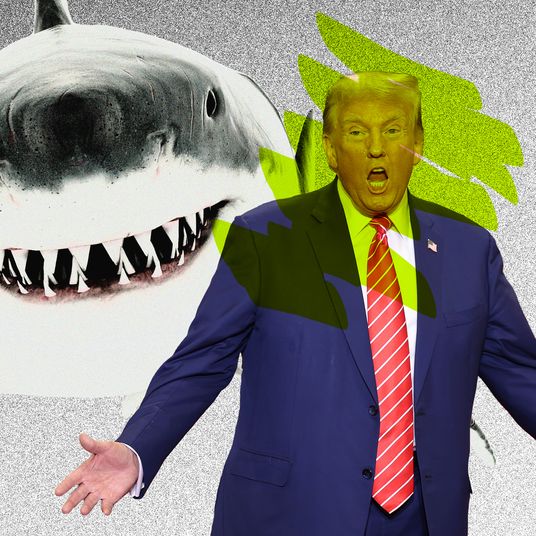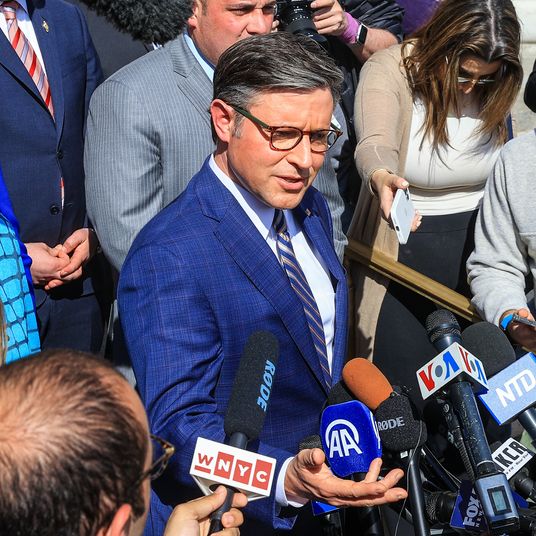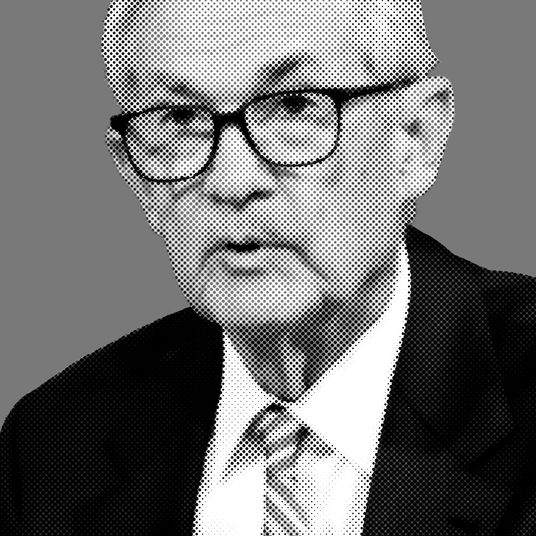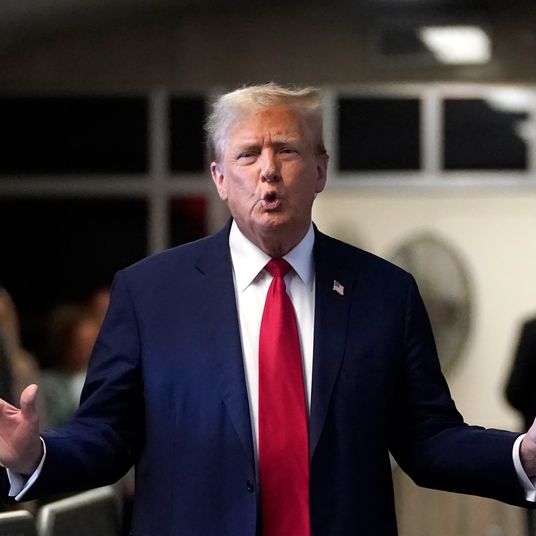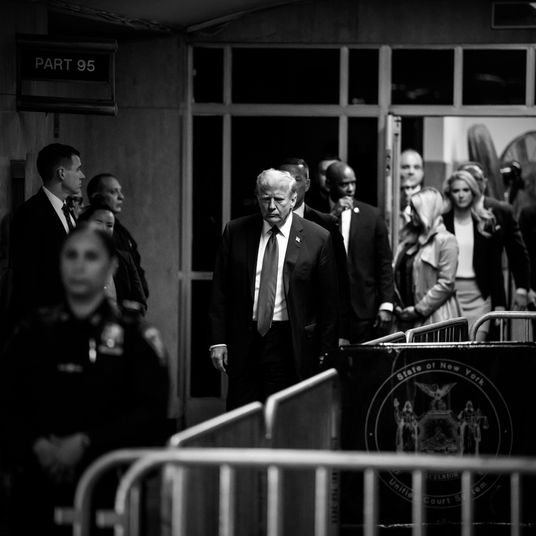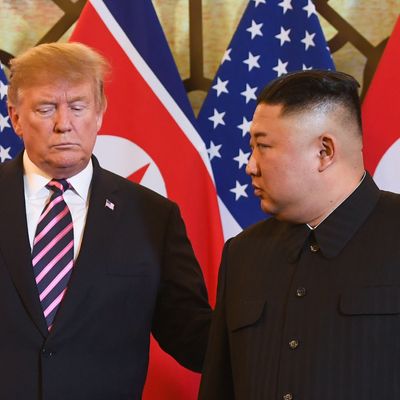
Metaphor is officially dead, another casualty of 2020. North Korea’s Kim Jong-un wants to signal to his counterparts in Seoul and Washington that he will blow up what’s left of their relationships unless his regime receives more concessions, so … he has literally blown up the liaison office, built and paid for by South Korea, that sat in the demilitarized zone between the two Koreas.
No one was hurt, thankfully; South Korean officials have not worked in the office for months because of coronavirus restrictions. As the International Crisis Group’s Duyeon Kim told Bloomberg, “We should remember that the liaison office was essentially already dead, so, if there’s a real problem, then it’s for South Korean taxpayers.”
But, of course, the previous demise of North-South rapprochement is a very real problem. In recent weeks, Kim Jong-un and his sister Kim Yo-jong have trained their public anger on Seoul for allowing private citizen activists to launch balloons across the border carrying accounts of the rulers’ misdeeds. But that’s been happening for well over a decade. It seems likely that what Pyongyang is really upset about is that Seoul continues to adhere to U.N. and U.S.-led sanctions. Net economic activity between the two countries has actually declined in recent years and, with more restrictions due to coronavirus, the North is hurting badly.
South Korea’s President Moon Jae-in was elected in 2017 promising to seek improved relations with the North. He hoped (not that he had much choice, since he wasn’t consulted first) that President Trump’s peace initiative-by-photo-op would turn into a sustained process that would allow the South to relax some sanctions and stabilize the North’s weak economy.
But Trump’s North Korea peace drive, like the Wicked Witch of the East from the Wizard of Oz, is not merely dead, but “really most sincerely dead.” We are only a few days past the two-year anniversary of the first Trump-Kim meeting, though it feels like a lifetime ago. Today Americans are dealing with coronavirus, economic collapse, the 2020 presidential campaign, and the fight for racial justice – who has time to think about Trump’s failed summer romance with a foreign dictator? Even foreign affairs nerds are distracted by Trump administration plans to pull U.S. troops out of Germany (and into Poland); get back into the Iran Deal (in order to declare it dead again and impose more sanctions on Tehran); and set aside $10 million in case the U.S. suddenly needs to test a nuclear weapon (after 30 years of leading a global ban on doing so). Oh, and then there’s Israel preparing to annex parts of the Palestinian-held West Bank, the Saudis bombing Yemen some more, and China undermining civil liberties in Hong Kong. Remember those crises? Remember that the Trump administration allegedly had plans to manage or prevent each one?
Longtime Korea-watcher Scott Snyder points out that while the U.S. may have moved on, North Korea decidedly has not. In fact, on the June 12 summit anniversary, Foreign Minister Ri Son Gwon issued a commemorative statement which reads, in part:
In retrospect, all the practices of the present U.S. administration so far are nothing but accumulating its political achievements.
Never again will we provide the U.S. chief executive with another package to be used for achievements without receiving any returns.
Nothing is more hypocritical than an empty promise.
Our Supreme Leadership… solemnly declared on further bolstering the national nuclear war deterrent to cope with the U.S. unabated threats of nuclear war.
Apparently Trump won’t be receiving “very beautiful” letters from Kim anymore – all Pyongyang sends now are reminders of its still-growing arsenal of nuclear weapons capable of targeting U.S. allies, troops, and territory.
In some ways, the current scenario is very familiar. For decades, North Korea has resorted to taking very aggressive, targeted actions to re-focus the attention of Washington and the world on its capabilities and demands. Through Pyongyang’s eyes, its current interlocutors are vulnerable. South Korea’s President Moon was elected promising breakthroughs with the North, and his country is now bracing for a possible second wave of coronavirus infections. Some analysts have suggested that Kim believes he has a better chance of extracting concessions from President Trump before the November election than from Joe Biden afterwards.
It seems unlikely that North Korea’s return to bullying tactics will yield anything but more fear and instability. With Trump facing a difficult reelection fight and various domestic crises, his administration is in no position to carefully negotiate a deal with North Korea. Any deal with Pyongyang, moreover, requires at least the acquiescence and ideally the active involvement of China. And Beijing is busy with its own possible renewed coronavirus outbreak, tamping out the flames of democracy in Hong Kong, and – in a truly worrying development – occupying disputed territory along its border with India, apparently killing Indian soldiers for the first time in decades.
The days of Trump shooting for big, beautiful deals are over. The best we can hope for between now and January 2021 is that his administration will manage to anticipate and defuse international conflicts before they explode into yet another crisis.






